Shinzo Abe, architect of 'Free and Open Indo-Pacific,' wrote the golden chapter of Philippines-Japan ties
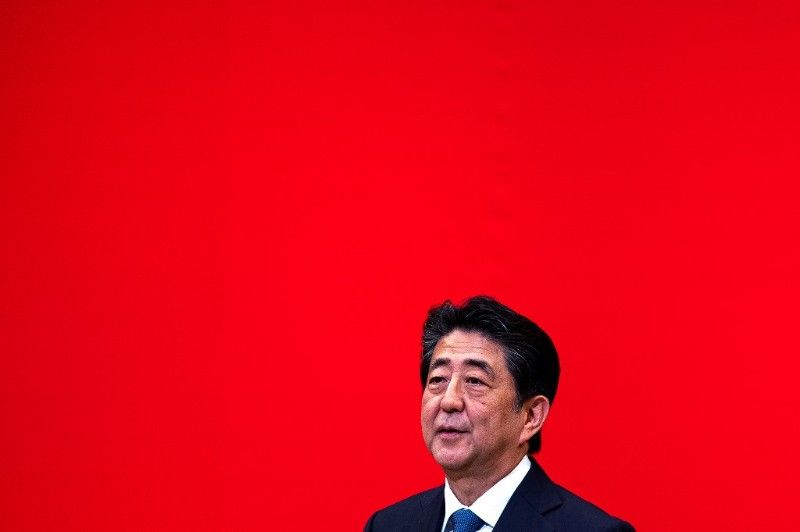
A commentary
From sharing sticky rice cakes and a bowl of mung bean soup for breakfast to seeing President Rodrigo Duterte’s must-have bedtime essential “kulambo” or mosquito net, the two-day state visit of Japanese Prime Minister Shinzo Abe to Davao in 2017 dropped all official protocols. The mood was uncharacteristically casual for a high-level event, but it solidified the golden era of the Philippines-Japan relations.
At the heels of his second resignation due to ill health from the top job, Abe leaves behind an indelible mark not only strengthening Manila and Tokyo’s partnership to a strategic level but laying the blueprint of the free and open Indo-Pacific.
During his tenure, Abe managed a disruptive transition from the Aquino to the Duterte administration marked by the dramatic shift in Philippine foreign policy. Unlike Aquino, the former mayor from Davao opted for an “independent foreign policy” characterized by his appeasement of China and contempt of the United States. Abe’s government stepped into the role of a near-perfect arbiter, mitigating the potential fallout from the breaking of the US-Philippines alliance while pursuing complementarity and competition with China.
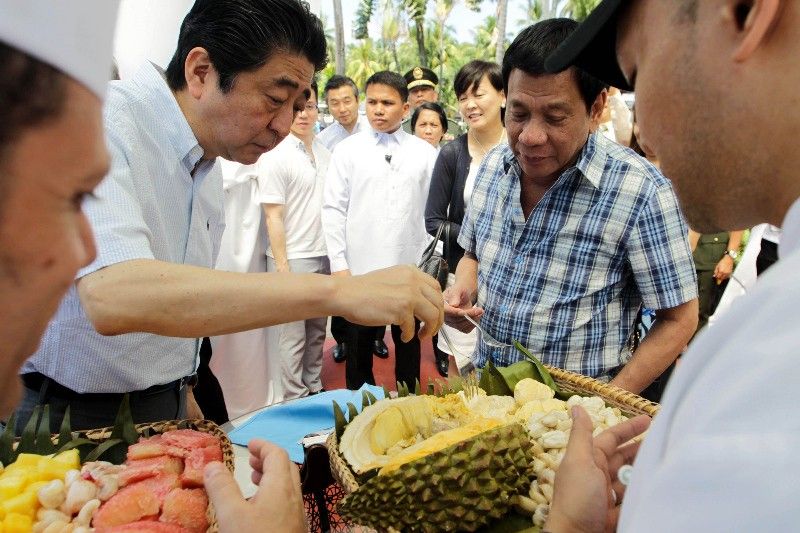
Under the Transfer of Defense Equipment and Technology agreement, Japan upgraded the Philippines maritime capability for intelligence, surveillance, and reconnaissance in the South China Sea. The two countries created the Philippines-Japan Vice Ministers Dialogue to facilitate high-level exchanges among armed forces and defense officials.
In the last two years, Japan has consistently occupied the top spot as the Philippines’ largest source of official development assistance (ODA). For the first quarter of 2020, grants and loans from the Japanese government amounted to $8.537 billion or 42.66%, while in 2018, Japanese ODA accounted for 41.2% of the total foreign-aid portfolio.
The Philippines and Japan also established the Joint Committee on Infrastructure Development and Economic Cooperation to coordinate public and private-sector investment for various infrastructure projects, including assistance to the on-going peace process in Southern Mindanao.
The bandwidth of Abe’s statecraft extends far beyond the Philippines, reverberating across Southeast Asia. As the US frontloads a hardline competitive stance against China’s increasing aggression in the region, Japan adopts a dual-track approach of competition and cooperation. This move resonated among ASEAN member-states given their shared proximity and economic interdependence with China.
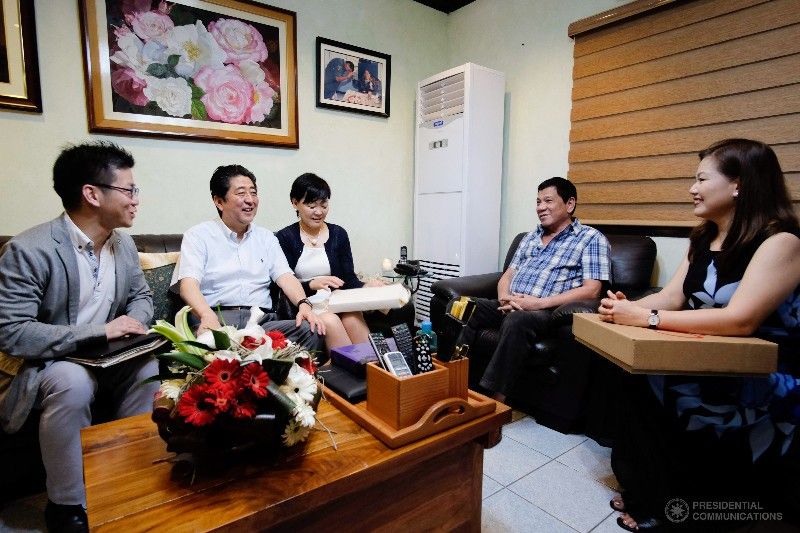
Japan’s pivotal role in the economic development, defense and security, and multilateral diplomacy in the region have translated the tenets of the “Free and Open Indo-Pacific Strategy” from policy to reality.
Amid the hype surrounding China’s Belt and Road Initiative, Japan was winning the infrastructure chessboard in the region with its sustainable, inclusive, and high-standard investment portfolio. A cursory glance at Japan Bank for International Cooperation’s portfolio reveals more than 20 infrastructure investment projects have been funded in Southeast Asia from 2007-2019. These figures exemplify the large volume of development financing and technical assistance poured to low-income countries under Abe’s leadership.
After the US abandoned the Transpacific Partnership, Abe resuscitated the deal to become the Comprehensive and Progressive Agreement on the Transpacific Partnership (CPTPP). Almost two years since its enforcement, CPTTP has achieved modest results, and the outlook on the long horizon appears promising with an increasing number of countries such as Indonesia, Thailand, and Taiwan keen to join the trade pact.
On defense and security, the 2020 Defense White Paper unveils the objective of the Abe government for Japan to undertake an even more proactive role in the region. Citing the “relentless” pursuit of China to alter the equilibrium in the East China Sea and the South China Sea, and the imminent nuclear threat from North Korea as major security concerns.
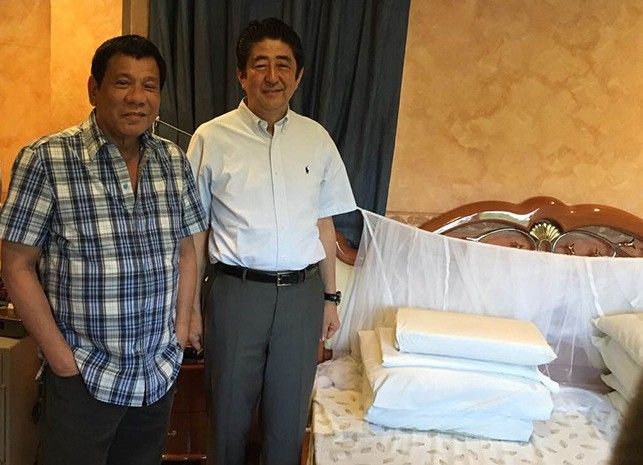
Following the release of the annual white paper, the Japanese Ministry of Defense has created a new post in the Defense Policy Bureau for ASEAN to coordinate the increasing defense partnerships in the region. The incoming division chief will be the focal point in coordinating greater synergy among ASEAN nations on joint exercise, defense equipment, and technology cooperation.
At the peak of Abe’s premiership, Japan’s reputation in the region was second to none. According to the 2019 Asia Power Index by Lowy Institute, Japan was hailed as the “new leader of the liberal order in Asia.” Japan reigns as the “quintessential smart power” in setting the regional agenda and buttressing the multilateral architecture.
Recently, Japan was crowned as the most trusted major power in Southeast Asia based on the State of Southeast Asia: 2020 Survey report by ISEAS Yusof Ishak Institute. The majority of the respondents (61.2%) across the region expressed high confidence for Japan “to do the right thing” in the provision of global public goods. Given the unpredictability of the Trump administration’s security commitment in the region, Southeast Asian respondents consider Japan as their preferred strategic partner.
In announcing his resignation last 28 August, Abe admitted that his departure was “gut-wrenching,” leaving some of his goals unfinished. Hours after his resignation, Abe’s legacy as Japan’s longest-serving prime minister was immediately scrutinized.
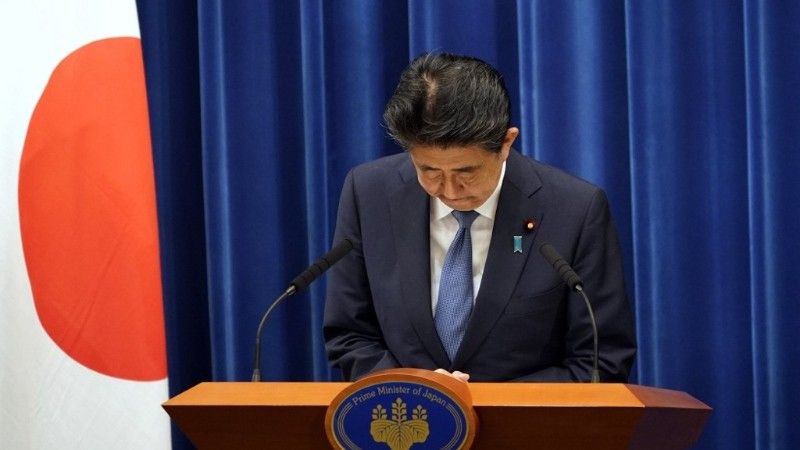
A quick audit of his track-record showed mixed results especially from the lens of Japanese domestic politics. From fully implementing Abenomics, resolving the abduction of Japanese nationals by North Korea, settling the territorial dispute with Russia, repairing the South Korea-Japan relations, to improving Japan’s prospects amid COVID-19, Abe’s reputation will be haunted by these unfulfilled promises. He might consider his failure to revise Japan’s pacifist constitution the most regrettable.
Abe may not have resolved Japan’s legacy of World War II defeat among other things, but he was able to rewrite the geostrategic construct of the Asia Pacific region in the 21st century, bringing a vision of a Free and Open Indo-Pacific to life. With this view from the backbench, Abe might reconsider, it wasn’t a very bad run after all.
--
Mark Manantan is the Lloyd and Lilian Vasey fellow at the Pacific Forum and a non-resident fellow at the Center for Southeast Asian Studies in Taiwan. He is the founder of Bryman Media. Views expressed are entirely personal.
- Latest


























